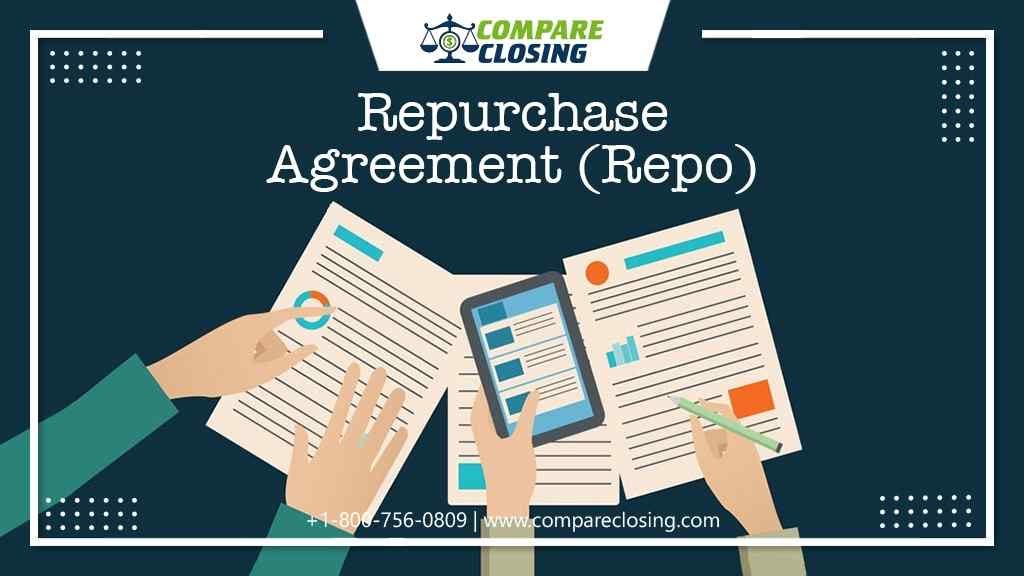
About Repurchase Agreement (Repo)
In the universe of lending, there are two types of loans secured and unsecured. In secured loans, the borrowing party has to give some sort of collateral to the lender or the bank to avail the loan.
This is how a loan transaction happens when it comes to individual borrowing.
However, in the case of banks or lenders borrowing money from investors or government bodies, the transaction happens in form of a repurchase agreement or a REPO.
In this post, we will learn more about what is REPO and how it works.
What is a Repurchase Agreement?
REPO is a short-term loan with an agreement that states that the seller of the asset will repurchase the asset in the given time for an additional price.
Let’s assume Bank A needs cash quickly and owns a bunch of assets (Bonds). Bank B on the other hand has excess cash and wants to put it to good use. In such cases,
Bank A can engage in a so-called repurchase agreement (REPO). In this example, Bank A which is the dealer gives the bonds that it owns to Bank B and agrees to buy them back at a later date usually very quickly, for example, the next day.
Bank B gives Bank A the cash it needs. When the time comes, Bank A buys the bonds back from Bank B at a higher price. In other words, Bank A received the cash it needed and Bank B made some monetary benefits.
More About REPO
The REPO market is just like a working engine under the hood of the car. And just like your car engine, you are unlikely to think about how it functions every day when you drive until something goes wrong with it.
It was very common for a lot of people to be unaware of the REPO market until they started hearing about all the issues with it in the financial news back in 2019.
This is a market that has a turnover of one to two trillion dollars every day making REPO one of the crucial parts of the financial market.
REPO stands for repurchase agreements and it is a form of short-term borrowing where securities and especially government securities are used as collateral.
The reason why it is called a repurchase agreement rather than just a collateralized loan is down to the way the transaction is done.
The REPO Market is just like a big pawnshop where many financial institutions come to buy or sell assets to obtain profits.
Once the repurchase agreement transaction is completed between two banks the additional money that Bank B made is usually the interest for the period for which the money was given to bank A. This interest charged in REPO is called a REPO Rate.
In situations where there is demand for borrowing in the REPO market but not enough lending available, the REPO rate will increase. This is a very basic term is that happened back in 2019.
How Does a REPO Market Work?
The Party that is lending the money, in our example Bank B, will be institutions such as banks and money market funds. The borrower Bank A will be institutions like investment banks, hedge funds, and brokers.
The Federal Reserve is also involved in the REPO markets to help regulate bank reserves and the money to play.
Typically, the lenders’ motivation for taking part in this deal is to make relatively risk-free short-term returns on their money.
The reason why this is relatively risk-free is that the securities are held as collateral.
This means that if the borrower institution is unable to repurchase the securities as agreed, the lending institution can sell the securities in the market to make its money back.
With this in mind, the value of the securities will always be higher than the amount of money that they have been bought for.
The difference between the value of securities and the money exchanged is known as Haircut. If there is a greater risk involved in the deal, the lender may ask for a larger Haircut and a higher REPO rate.
Conclusion
It is these REPO transactions at a huge scale that allows the market to function smoothly. It allows financial institutions to obtain liquidity for their day-to-day needs and facilitates all kinds of trading.
Hence REPO is one of the most significant parts of the financial sector as it keeps the wheel of finance spinning providing daily financial aid to the required institutions.
https://www.compareclosing.com/blog/what-is-a-repurchase-agreement-repo/
Comments
Post a Comment